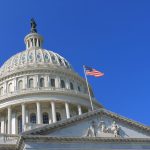Published January 6, 2014
In the final weeks of 2013, most of the Obamacare focus was on the disastrous launch of the federal and state exchanges, followed by the frenzied effort to get the websites up to a minimum level of functionality before December 1. Almost forgotten in the tumult was the unpleasant reality that the highly controversial “HHS mandate” was about to go live on January 1, along with the rest of Obamacare. The mandate is the requirement that all employer-sponsored insurance plans, including those offered by employers with strong religious objections to the mandate, must provide “free” contraceptives, abortifacient drugs, and sterilization procedures to their workers and their workers’ families.
Employers who object to the mandate hadn’t forgotten about it, of course. They had been looking ahead to January 1, 2014, with dread for nearly three years, knowing that this might be the moment when they would have to choose between violating their consciences and accepting large financial penalties for sticking to their principles. The scores of lawsuits filed in federal court since the mandate was finalized last year are an indication of how seriously these employers are taking the issue.
This week, Supreme Court Justice Sonya Sotomayor thrust the issue back into the headlines by blocking the imposition of the mandate, at least temporarily, on the Little Sisters of the Poor, an order of Catholic nuns that, among other things, runs a nursing home in Denver, Colo. Sotomayor’s order had the effect of providing a short-term reprieve for the nuns while they await a required response from the Department of Justice, filed with the court late last week. Now, Sotomayor and her colleagues on the Court could decide to extend the stay until the lower-court case filed by the Little Sisters has run its course, or she could lift the stay during the lower-court proceedings.
But even if the Little Sisters of the Poor win a longer reprieve while their case is being heard, that won’t spare many other religious nonprofits, including the University of Notre Dame. They are already being forced by the courts to comply with the mandate while their cases are under consideration. (Although Notre Dame lost its bid for injunctive relief, most of the religious nonprofits that have filed suits against the mandate have been given temporary relief by the courts pending resolution of their cases.) So the HHS mandate is no longer just a theoretical possibility. It is now being imposed on real institutions, in clear violation of their religious-liberty rights.
As the legal wrangling continues, it’s easy to fall into the trap of assuming that this clash between sweeping health-policy objectives and religious freedom was inevitable at some point, and that a judicial remedy can help define where the lines should be drawn going forward.
But this is far too benign a view of how this issue came about. There was nothing inevitable about this fight. The truth is that the Obama administration manufactured this confrontation and did so for entirely political reasons. Prior to 2011, the Obama administration never argued that the lack of access to “free” contraceptives and sterilization procedures, especially among women, was a burning national crisis that demanded immediate attention. The administration never raised this as an issue because there was no such crisis. Contraceptives have long been readily available and inexpensive in this country. The federal government subsidizes large numbers of clinics that provide these products essentially at no direct cost to consumers or for very low cost.
But in 2011 and early 2012, the Obama administration decided that access to “free” contraception, abortifacient drugs, and sterilization procedures was such an important American “right” that it necessitated forcing all employers, including those with religious objections, to facilitate access to these products and services for their workers. When the inevitable objections were voiced, the Obama administration and its political allies pounced. Here was the divisive social issue they were looking for in the run-up to the 2012 election. Democrats condemned opponents of the mandate for engaging in a heretofore never mentioned “war on women” — the aim of which was supposedly to deny women access to their contraceptive methods. These political attacks were so preposterous that they were laughable. But the Obama campaign team wasn’t easily embarrassed in 2012. They drove this theme, pitched to certain segments of women voters, all the way to Election Day.
The legal and political standoff that exists today is a direct result of the administration’s decision to use the issue as a political weapon in the 2012 election. Having picked this fight, the administration could not back down and provide a reasonable exemption for all employers with religious objections because that would offend the group of supporters it courted so assiduously in the 2012 campaign.
This explains the pathetic “accommodation” now at issue in so many of the court cases brought by Catholic organizations and institutions. The Obama administration is contending that nonprofit religious institutions don’t have to provide access to the products and services they find objectionable. They only have to “self-certify” that they have an objection, at which point the insurance plans they work with will be required to provide the coverage without the involvement of the employers.
But this is a farce. A Catholic employer signing such a “self-certification” notice will know in advance that doing so will trigger coverage by the contracted insurer of the products and services the employer wants to avoid (third-party administrators working with employers that self-insure will act in the place of the insurers under the administration’s regulation). In other words, the moral effect is the same as if the employer were required to provide the coverage directly through its insurance plan. The administration’s “accommodation” is thus a non-solution intended to obfuscate rather than solve the problem. That some Catholic organizations have provided cover for the administration by supporting this charade, despite the clear opposition of the U.S. Catholic bishops, speaks volumes. These groups have shown yet again that it is far more important to them to stay within the good graces of the Democratic party than to practice genuine fidelity to those responsible for shepherding the church.
At this point, there is reason to be hopeful that the courts will remedy this sad situation. It is hard to read the facts of these cases and not see a gross violation of religious liberty. But it should never have reached the point where court intervention was necessary. This was a manufactured political confrontation, intended to sway some voters in the 2012 election. That it has the potential to cause lasting damage to one of the most cherished rights under the Constitution would seem to matter little to those who would pursue political ends at all costs.
James C. Capretta is a senior fellow at the Ethics and Public Policy Center and a visiting fellow at the American Enterprise Institute.






